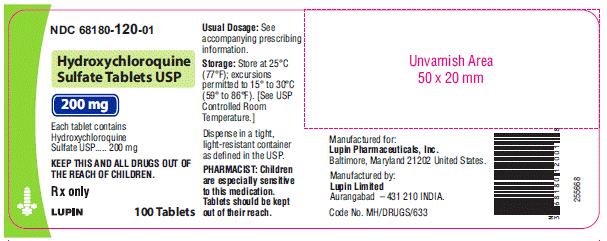
Hydroxychloroquinesulfate Tablet while Breastfeeding
What is Hydroxychloroquinesulfate Tablet used for?
Hydroxychloroquinesulfate Tablet while breastfeeding safe or not? Can there be any side effects for infant while using it during breastfeeding?

Hydroxychloroquinesulfate Tablet Breastfeeding Analsys
Hydroxychloroquine sulfate while Breastfeeding
SafeCAS Number: 747-36-4
Antimalarial drug used as anti-inflammatory and immunomodulating agent on tissue diseases such as arthritis or lupus. It is excreted in breast milk in clinically non-significant amount which is much lower than the dose used in infants. Problems related to clinical features, development, vision or hearing issues have not been observed in infants whose mothers have received this medication. When the mother takes 400 mg per day only 1 mg appears for every liter of milk, which is not considered dangerous to the infant, since a preventive dose for malaria in infants is 5 mg per kilo of weight once a week. American Academy of Pediatrics states that it is usually compatible with breastfeeding medication.
Hydroxychloroquinesulfate Tablet Breastfeeding Analsys - 2
Hydroxychloroquine sulfate while Breastfeeding
CAS Number: 118-42-3
Infants exposed to hydroxychloroquine during breastfeeding receive only small amounts of the drug in breastmilk. In a small number of infants up to at least 1 year of age, careful follow-up found no adverse effects on growth, vision or hearing.[1][2] International experts indicate that hydroxychloroquine is acceptable during breastfeeding.[3][4][5][6] When given once weekly for malaria prophylaxis, the amount of drug is not sufficient to harm the infant nor is the quantity sufficient to protect the child from malaria. Breastfeeding infants should receive the recommended dosages of hydroxychloroquine for malaria prophylaxis.[7]
What if I already have used Hydroxychloroquinesulfate Tablet?
Hydroxychloroquinesulfate Tablet is safe in breastfeeding and should not create any health problem for your baby but in case you feel any health issue associated with Hydroxychloroquinesulfate Tablet you should contact your doctor or health care provider. Be it pregnancy or lactation you shall keep your doctor informed.
I am nursing mother and my doctor has suggested me to use Hydroxychloroquinesulfate Tablet, is it safe?
Usage of Hydroxychloroquinesulfate Tablet is safe for nursing mothers and baby, No worries.
If I am using Hydroxychloroquinesulfate Tablet, will my baby need extra monitoring?
No
Who can I talk to if I have questions about usage of Hydroxychloroquinesulfate Tablet in breastfeeding?
US
National Womens Health and Breastfeeding Helpline: 800-994-9662 (TDD 888-220-5446) 9 a.m. and 6 p.m. ET, Monday through Friday
UK
National Breastfeeding Helpline: 0300-100-0212 9.30am to 9.30pm, daily
Association of Breastfeeding Mothers: 0300-330-5453
La Leche League: 0345-120-2918
The Breastfeeding Network supporter line in Bengali and Sylheti: 0300-456-2421
National Childbirth Trust (NCT): 0300-330-0700
Australia
National Breastfeeding Helpline: 1800-686-268 24 hours a day, 7 days a week
Canada
Telehealth Ontario for breastfeeding: 1-866-797-0000 24 hours a day, 7 days a week
